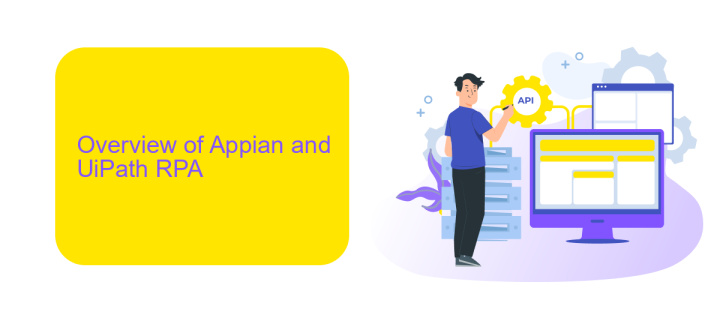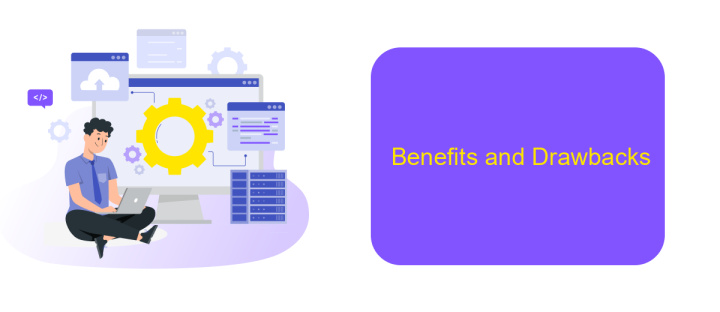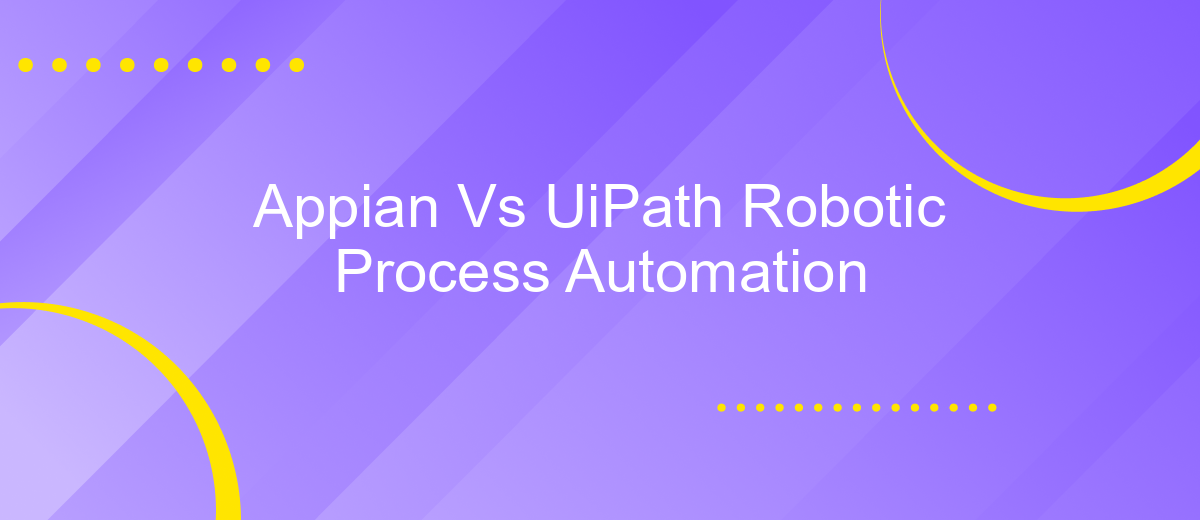Appian Vs UiPath Robotic Process Automation
In the rapidly evolving landscape of Robotic Process Automation (RPA), Appian and UiPath stand out as two leading platforms. This article delves into a comparative analysis of Appian and UiPath, examining their features, strengths, and unique offerings. Whether you're a business looking to streamline operations or a developer seeking robust automation tools, understanding these platforms is crucial for making an informed decision.
Introduction
In the rapidly evolving world of automation, businesses are increasingly turning to Robotic Process Automation (RPA) to streamline operations and enhance productivity. Two of the most prominent players in this field are Appian and UiPath. Both platforms offer robust solutions for automating repetitive tasks, but they differ in several key aspects.
- Appian: Known for its low-code automation capabilities, Appian combines RPA with business process management (BPM) to provide a comprehensive solution.
- UiPath: Specializes in RPA and offers extensive tools for automating complex workflows, particularly excelling in desktop automation.
Choosing between Appian and UiPath depends on the specific needs of your organization. While Appian's strength lies in its integration with BPM, UiPath offers superior desktop automation features. For businesses looking to integrate various applications seamlessly, services like ApiX-Drive can be invaluable, enabling smooth data flow and enhanced automation efficiency. Understanding these differences will help you make an informed decision tailored to your automation goals.
Overview of Appian and UiPath RPA

Appian and UiPath are two prominent players in the realm of Robotic Process Automation (RPA). Appian specializes in low-code automation, offering a comprehensive platform that integrates RPA, artificial intelligence, and business process management. This enables organizations to design, automate, and optimize complex workflows with minimal coding effort. Appian's strength lies in its ability to seamlessly integrate various systems and applications, providing a unified environment for process automation.
UiPath, on the other hand, focuses primarily on RPA, offering tools to automate repetitive tasks across multiple applications and systems. Known for its user-friendly interface and robust capabilities, UiPath allows businesses to deploy bots that mimic human actions, thereby increasing efficiency and reducing operational costs. For enhanced integration capabilities, services like ApiX-Drive can be utilized to connect UiPath with other applications, ensuring smooth data flow and process synchronization. Both platforms offer unique strengths, making them suitable for different organizational needs in the automation landscape.
Comparison of Features and Capabilities

When comparing Appian and UiPath in the realm of Robotic Process Automation (RPA), it's essential to examine their features and capabilities to understand which platform better suits your needs.
- User Interface: Appian offers a low-code development environment, making it accessible for users with minimal coding experience. UiPath, on the other hand, provides a more traditional RPA interface with drag-and-drop functionality.
- Integration: Both platforms support extensive integration with third-party applications. Appian excels in seamless API integrations, while UiPath offers robust connectors and integration services like ApiX-Drive, which simplifies the process of connecting various applications.
- Scalability: Appian is designed for enterprise-level scalability, allowing for complex workflows and large user bases. UiPath also scales effectively but is particularly strong in automating repetitive tasks across multiple systems.
Ultimately, the choice between Appian and UiPath depends on your specific requirements. Appian is ideal for those seeking a comprehensive low-code platform with strong integration capabilities, while UiPath excels in traditional RPA tasks and offers extensive support for integration services like ApiX-Drive.
Benefits and Drawbacks

When comparing Appian and UiPath for Robotic Process Automation (RPA), it's essential to weigh their benefits and drawbacks. Appian is well-known for its low-code platform that allows for rapid application development, making it easier for businesses to automate processes without extensive coding knowledge. UiPath, on the other hand, excels in providing robust RPA capabilities with a focus on automating repetitive tasks across various applications.
Both platforms have their unique advantages. Appian's integration with third-party services like ApiX-Drive allows for seamless data flow between different systems, enhancing overall efficiency. UiPath offers a vast range of pre-built automation components, which can significantly reduce the time required to deploy automation solutions.
- Appian: Low-code platform, easy integration with services like ApiX-Drive, rapid application development.
- UiPath: Strong RPA capabilities, extensive library of automation components, user-friendly interface.
However, there are some drawbacks to consider. Appian may require additional training for users unfamiliar with low-code platforms, while UiPath's extensive features might be overwhelming for small businesses. Ultimately, the choice between Appian and UiPath should be based on specific business needs and the complexity of the processes to be automated.
Conclusion
In conclusion, both Appian and UiPath offer robust solutions for Robotic Process Automation (RPA), each with its unique strengths. Appian excels in its low-code development environment, making it easier for businesses to automate complex workflows without extensive coding knowledge. Its strong integration capabilities, especially when combined with services like ApiX-Drive, allow for seamless interaction between various systems, enhancing overall efficiency.
On the other hand, UiPath stands out for its advanced automation features and user-friendly interface, which are particularly beneficial for large-scale automation projects. Its extensive library of pre-built automation components and strong community support make it a versatile choice for enterprises aiming to scale their RPA initiatives. Ultimately, the choice between Appian and UiPath will depend on specific business needs, existing infrastructure, and the level of customization required. Both platforms offer compelling advantages, ensuring that businesses can find a solution that aligns with their automation goals.
- Automate the work of an online store or landing
- Empower through integration
- Don't spend money on programmers and integrators
- Save time by automating routine tasks
FAQ
What are the primary differences between Appian and UiPath in Robotic Process Automation (RPA)?
Can Appian and UiPath be integrated together?
Which platform is better for non-technical users?
How can I get started with automation if I am new to both Appian and UiPath?
What are the costs associated with using Appian and UiPath?
Strive to take your business to the next level, achieve your goals faster and more efficiently? Apix-Drive is your reliable assistant for these tasks. An online service and application connector will help you automate key business processes and get rid of the routine. You and your employees will free up time for important core tasks. Try Apix-Drive features for free to see the effectiveness of the online connector for yourself.


